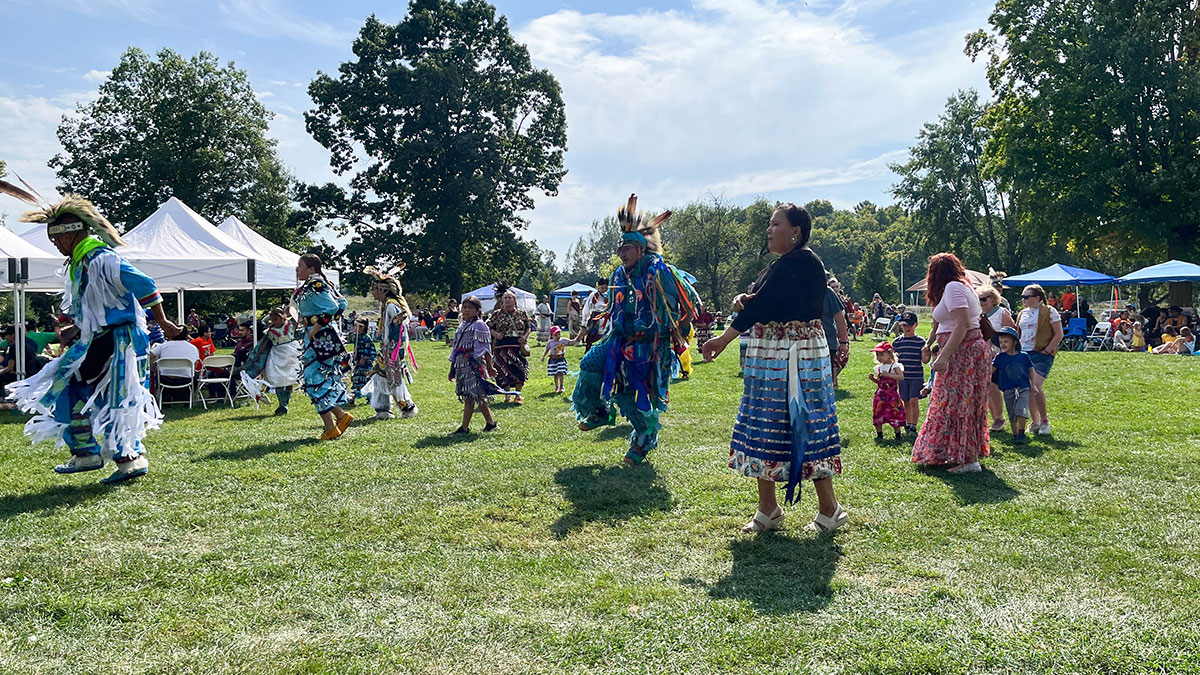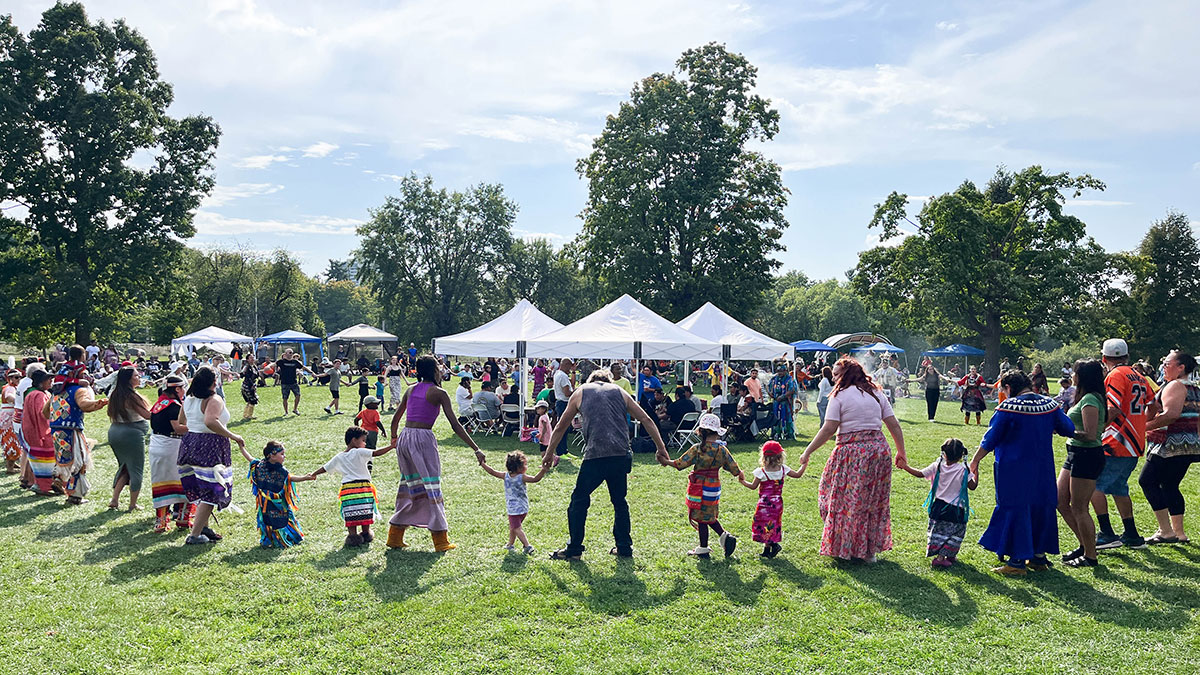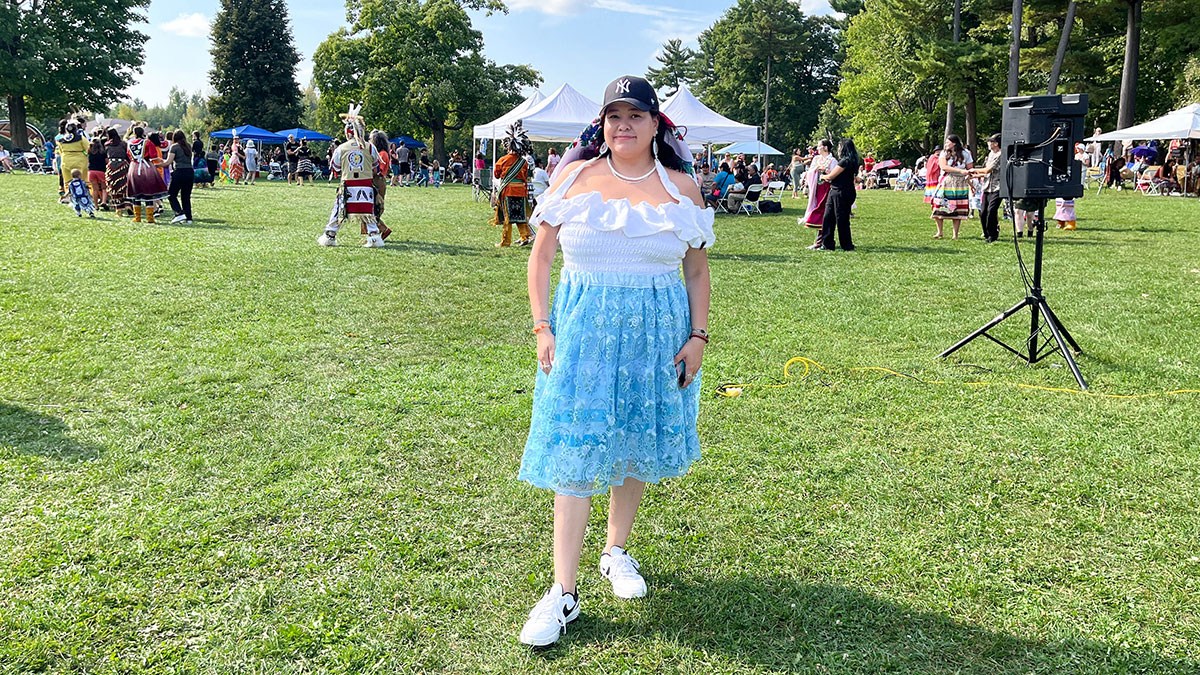A non-profit committed to empowering Indigenous youth in Ottawa will mark the National Day for Truth and Reconciliation with walking tours that aim to spread awareness about Canada’s colonial history.
Also referred to as Orange Shirt Day, the National Day for Truth and Reconciliation on Sept. 30 honours survivors of the residential school system and the children who never came home. It was declared a federal holiday in 2021.
About 520 people are registered for the two Reconciling History walks offered by the Assembly of Seven Generations (A7G), which take place in Beechwood Cemetery and downtown Ottawa.
“I am a tour guide, and I am really proud to be able to reclaim some space and history for the people that attend,” said Celine Debassige, a helper with A7G.
Debassige has been involved with A7G since she was 20 when she discovered the organization through social media.
“A7G has honestly been such an important pillar of my life,” Debassige said. “Navigating being a minority on your own land, especially in such an urban space, and that of the capital, where a lot of the policies and legislation of our systemic oppression is being made, can be really daunting. So having A7G and the peer-to-peer support that they offer and the community that they provide has been essential to my overall wellbeing.”
Gabrielle Fayant, one of the co-founders of A7G, takes pride in the reliability of the organization for young people in Ottawa.
“I guess in a lot of ways we’re like a rock for a lot of people,” Fayant told Capital Current.

The walking tours are a partnership between A7G, the First Nations Child and Family Caring Society, and Beechwood Cemetery.
The cemetery tour, which is expected to have 360 participants, 200 of whom will be students, focuses on the residential school attendees who never got a proper burial.
“A lot of them had unmarked graves, and it was only until those unmarked graves were brought to light where Canadian citizens actually listened to Indigenous communities and voices and survivors of the systemic oppression and the genocide we were put through,” Debassige said.
Participants will also learn about the influential policymakers who have memorials in Beechwood Cemetery and their roles in Canada’s colonial history.
One of those figures was Dr. Peter Henderson Bryce, the chief medical officer of the federal Departments of the Interior and Indian Affairs from 1904 to 1921. His 1907 Report on the Indian Schools of Manitoba and the Northwest Territories, also referred to as the Bryce Report, report brought to light the unsanitary conditions in residential schools and called for safer and more humane treatment of students.
The report was not published by the department, but some of the information in it was reported by journalists.
Another figure buried in Beechwood was Duncan Campbell Scott, the deputy superintendent general of the Department of Indian Affairs from 1913 to 1932. Scott was responsible for the expansion of the residential school system despite Bryce’s findings. He also passed an amendment to the Indian Act that made residential school attendance mandatory for Indigenous children between age seven and 15.
This juxtaposition is a central theme of the cemetery tour, Debassige says.
“Whether you’re on the good side of history or on the inhumane side, you still end up in Mother Earth,” Debassige said.
The downtown tour starts on Spark Street, passes by the Parliament Buildings and ends at Adaawewigamig, A7G’s storefront in the ByWard Market.
“We bring light to the hypocrisy in the judicial system, where justice has never actually been indiscriminatory, unbiased or properly accounted for,” Debassige said.
This year’s downtown and cemetery tours are fully booked, but the First Nations Child and Family Caring Society website offers options including a virtual version of the downtown tour.
Debassige has another suggestion for how you can support A7G on the National Day for Truth and Reconciliation.
“Give us your money,” Debassige said. “I think that if you are in a place of privilege, where you can go and buy an $8 latte for yourself every day, you could donate $5 to $20 for Orange Shirt Day.”
According to A7G’s website, donations go towards youth initiatives, transportation, meals and emergency support for Indigenous youth in the city.

Elder Shirley Tolley, an Anishinaabemowin teacher on Kitigan Zibi reserve, is proud of the work A7G is doing. She says that gatherings like A7G’s powwow held on Sept. 21 are important for Indigenous youth.
“When I was a little girl, I only spoke Anishinaabemowin at home, but as soon as I entered that school, a federal school, in the community, on reserve, I was not allowed to speak my language,” Tolley said.
“Now we are teaching the language. We’re bringing back the drums. We’re bringing back the songs, the smudging, the ceremonies. Now we’re bringing it back.”
This interactive map shows the key locations on the Reconciling History walking tours. [Map © Laura Gillis]




